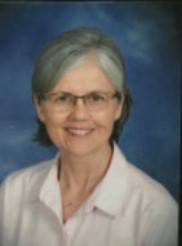The parish sponsors a program of Bible Study based on the Great Adventure Bible Series. Small groups of parishioners meet to view and discuss videos on our Catholic faith. Participants grow in their appreciation of the scriptures and in their relationship with God, who speaks to us through His Word.

Many people are not interested in reading the Bible, thinking that it would be boring or overwhelming. But the truth is that once you get started, it is quite interesting.
Many Old Testament stories remind me of soap operas, in which people just keep getting themselves into trouble. The Bible is full of stories that you might find on soap operas – infidelity, unintended pregnancies, murder, violence, and lots of family problems. There certainly are moral lessons to be learned from these kinds of stories – don’t do what they were doing!!
Prior to Vatican II, it was not common practice for Catholics to read the Bible. Scripture would be read from the pulpit and the priest would explain the readings in his homily. In the 1970’s, a program that promoted scripture reading in a small group faith- sharing format became quite popular. It was called Renew and was started by two priests in our own Archdiocese of Newark and became popular in our parish during the 80’s and 90’s.
In March 2008, the Archdiocese of Newark encouraged people to attend a one-day seminar introducing The Bible Timeline. It was part of a new video-based Catholic bible study with a small group format. Several parishioners from St. Joseph Church were happy to take part. Its founder, Jeff Cavins, was a biblical scholar who had left the Church to become a Protestant pastor but ended up returning to the Catholic Church. He found a way to make it easier for people to read the bible by focusing on the 14 narrative books of the Bible that told the story of salvation history from Genesis to Revelation.
The Bible Timeline, published by Ascension Press, included a workbook outlining what to read and questions to complete prior to each weekly session. After discussing the questions, the group members would watch a video that would explain the main themes of the readings. It was an intense 24-week study; each session would last approximately 90 minutes and involved a good amount of reading, but we were encouraged not to get frustrated. Even if you didn’t get to do the homework, coming to the weekly sessions was still worthwhile. The videos and small group discussions were really the best part. After completing the Bible Timeline, participants began to better understand the scriptures that were read at Sunday mass.
Since 2008, the Bible study program at our parish has offered studies of 13 other individual books of the Bible as well 9 other Bible-related studies that could be considered Adult Faith Formation/Catechetical Studies. At the peak of our Bible Study program in 2011, we had about 75 people participating in nine different groups that were meeting at various times every day of the week (Mon-Fri). Over time, Ascension Press began offering shorter studies, commonly 8-10 weeks as well as online access to the study guides and videos, which was especially helpful during the pandemic. Some groups continued their Bible studies via Zoom.
Another new offering about which I am very enthusiastic is the new podcast offered by Ascension called the Bible in a Year Podcast. Fr. Mike Schmitz reads from the Bible in the same order that Jeff Cavins had set up the Bible Timeline. Cavins also introduces each new Biblical time period. Daily podcasts last approximately 20 minutes, starting
with the Bible readings, followed by a brief prayer, and ending with an explanation of what was read. It is extremely popular and worthwhile.
In keeping up with our fast-paced world, online independent study is now easier than ever. But the in-person, small group faith-sharing format is really the best way to study the Bible. “For where two or more are gathered in My Name, there am I in the midst of them.”
-Patricia Fakharzadeh
E-mail: [email protected]
